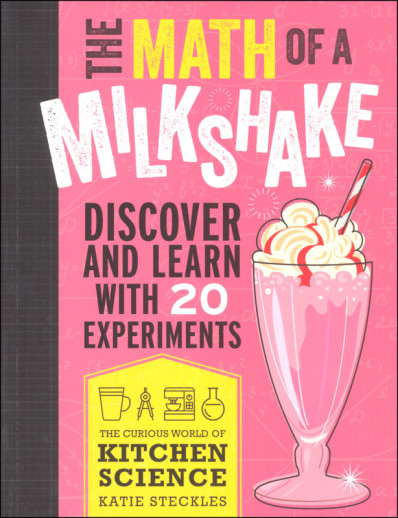We use cookies to make your experience better. To comply with the new e-Privacy directive, we need to ask for your consent to set the cookies. Learn more.
Math of a Milkshake (Curious World of Kitchen Science)
Includes twenty experiments covering numbers, shapes, real-world math, and logical thinking. Topically, students learn about Pi, hidden numbers in food, symmetry, exponential growth, patterns, and more. Numerous math and logic puzzles are included.
Discover the secrets of Pi(e), learn about the hidden numbers in your food, conduct experiments with shapes and patterns, and more. Become a Kitchen Scientist by creating number patterns with chicken nuggets, figuring out fractions using a pepperoni pizza and spotting symmetry in snowflakes from your freezer! The Math of Milkshakes brings math into the kitchen for a fun and interactive approach to learning for the whole family.
Science just makes more sense when we apply it to the real world, and what is more real for Junior High and High schoolers than the kitchen! Whether making cell cookies, colorless cola, or calculating the density of pop or un-popped popcorn, this series helps students explore the key principles of science in a hands-on, practical way! Chapters are written to the student and follow three steps: Discover, Learn, Experiment. Adult supervision is recommended for some activities. An excellent companion to your science curriculum or co-op class to bring meaning to the world of science. Would also be an excellent summer resource to review previously learned material or as a way to introduce the upcoming science curriculum. Secular publisher. ~Deanne


Looks like fun!
We have used the E-Z Biology and E-Z Chemistry and have been happy with how they helped our daughter to understand complex scientific concepts.